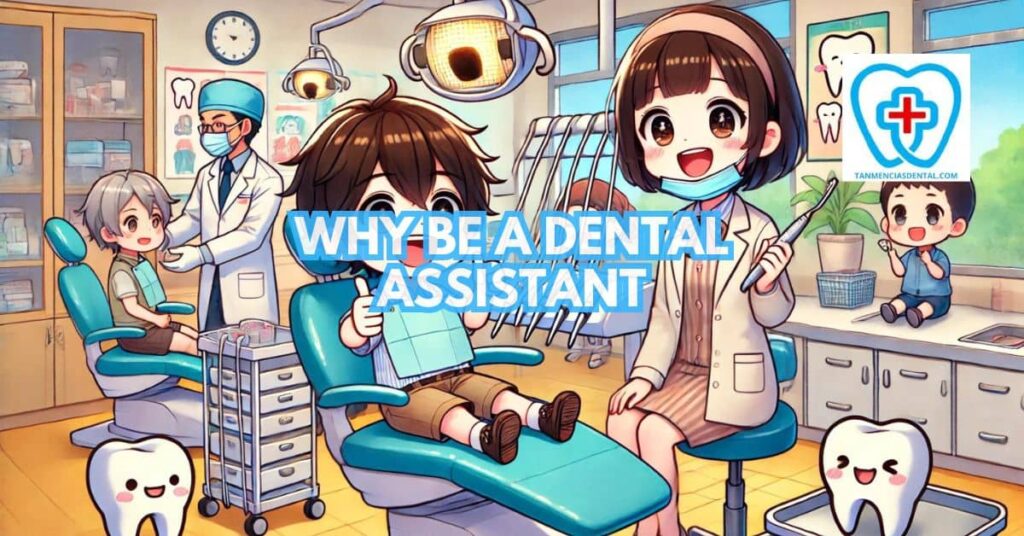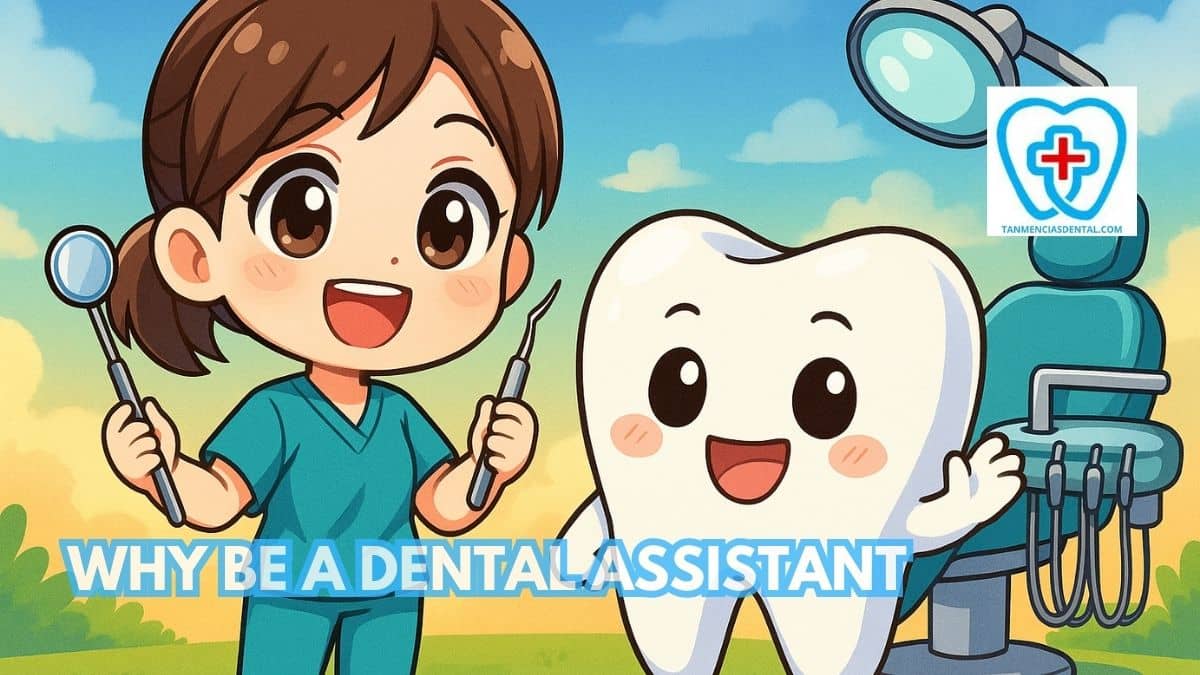Many people wonder why be a dental assistant, and the answer goes far beyond helping with patient smiles.
This career offers steady work, opportunities to learn, and the chance to play an important role in health care.
Dental assistants support both patients and dentists by making sure treatments run smoothly and people feel at ease.
The job is flexible, with paths for growth in both clinical and administrative areas.
Most of all, it is a career that makes a real difference in the daily lives of patients and their families.
1. More Than Smiles: High Demand and Secure Dental Assistant Careers
The demand for dental assistants in the Philippines continues to grow, especially in urban centers where people regularly visit clinics for checkups and treatments.
As public awareness of oral health improves, more dental offices are opening, and hospitals are adding dental units, creating steady demand for skilled support staff.
Although there are no official government labor statistics focused only on dental assistants, the visible increase in private dental practices shows how much the role is needed.
A career in dental assisting provides stability because trained professionals are valued in both small clinics and larger health facilities.
Those who finish formal training or certification are more likely to earn a reliable income and enjoy long-term opportunities in the field.
Job openings can be found not only in private practices but also in hospitals, community health programs, and dental schools across the country, giving workers many choices for where to build their future.
🦷 How Smile Correction Can Transform Your Confidence and Appearance
2. Beyond the Chairside: Variety and Challenge in Dental Assisting
Dental assistance is not limited to helping the dentist during treatments, as the role involves many different responsibilities each day.
Assistants manage administrative tasks such as scheduling, keeping patient records accurate, and preparing treatment areas before appointments.
They also take charge of sterilizing instruments and making sure infection control measures are followed to keep both patients and staff safe.
Another part of their work is patient education, where they explain proper brushing and oral care practices in simple and clear ways.
Because these tasks require both technical skills and strong communication, dental assistants are always learning and adapting.
This variety keeps the career dynamic and ensures that no two days feel exactly the same, which makes the work engaging and meaningful.
🦷 Chewing Gum Instead of Brushing Teeth: Can Gum Really Save the Day?
3. Helping Patients Shine: The Impact of Dental Assistants on Oral Health
Dental assistants play a crucial role in improving patients’ oral health.
They assist in procedures like fillings, crowns, and extractions, ensuring they run smoothly.
They also take and develop X-rays, providing essential diagnostic information to the dentist.
Educating patients about dental hygiene helps prevent future dental issues.
Their efforts help patients maintain bright, healthy smiles, which boosts overall confidence and well-being.
🦷 Brushing Up on Prevention: Can Tooth Decay Be Reversed or Only Prevented?
4. Thriving in Action: A Fast-Paced and Dynamic Dental Work Environment
The dental office is a fast-paced setting where dental assistants thrive.
Each day brings new tasks, from preparing instruments to assisting in various procedures.
This dynamic environment ensures that the job is never dull, keeping assistants engaged and motivated.
Dental assistants must be quick thinkers and adaptable to changes, making the role both challenging and exciting.
The fast-paced nature of the job also means that time flies by, and there’s always something new to learn.
🦷 Why Brushing Your Teeth At Night Is More Important Than You Think

5. The Human Touch: Why Communication Skills Matter in Dental Assisting
Effective communication is essential for dental assistants.
They interact with patients, explaining procedures and answering questions to alleviate fears.
Good communication skills help in building rapport with patients, making them feel comfortable and valued.
Dental assistants also coordinate with dentists and other team members, ensuring smooth workflow and patient care.
By clearly conveying instructions and information, they contribute significantly to a positive dental experience.
🦷 How Long Does It Take To Treat Gingivitis?
6. Achieving Balance: Flexible Schedules for Dental Assistants
Many dental offices offer flexible schedules for assistants.
This flexibility allows for a better work-life balance, accommodating personal commitments and family time.
Dental assistants can often choose between part-time or full-time positions to suit their needs.
This flexibility is particularly beneficial for those pursuing further education or managing other responsibilities.
A balanced schedule contributes to job satisfaction and overall well-being.
🦷 Can You Recycle Electric Toothbrushes?
7. Lifelong Learning: Educational Opportunities in the Dental Field
Continuing education is an important part of dental assisting because it allows workers to build on the knowledge they first gained in a dental assisting program.
After finishing their initial training, assistants can take short courses or attend workshops to learn about new techniques and updated safety standards.
Professional groups and dental associations often provide these opportunities, which help assistants stay current with changes in the field.
Some training focuses on advanced skills such as dental radiography, chairside assistance for complex treatments, or office management.
By joining these programs, dental assistants can move into specialized roles that bring greater responsibility and career growth.
Ongoing learning ensures that they can continue to provide safe, accurate, and effective care for every patient they support.
🦷 How to Choose the Best Antibacterial Toothpaste for Gingivitis That Really Works
8. Growth Beyond Dental Assisting
A career as a dental assistant can open doors to many future roles.
Some choose to continue their training and become dental hygienists, assuming more responsibility for patient care.
Others move into office management, where they handle daily operations and team coordination.
Teaching and training new dental assistants is another path for those who enjoy sharing their skills and expertise.
Some even enter sales or marketing for dental products, using their knowledge to guide clinics in choosing the right tools.
🦷 Why Dentistry Is Important: How It Saves Lives Beyond Just Smiles
9. Competitive Advantages: Salary and Benefits of a Dental Assistant
Dental assistants enjoy competitive salaries and a range of benefits.
These benefits often include health insurance, retirement plans, and paid time off.
The financial rewards make this career appealing and help ensure financial stability.
Additionally, many dental assistants receive bonuses and incentives based on performance and tenure.
These competitive advantages make the role both rewarding and sustainable in the long term.
🦷 Is It OK To Eat After Brushing Your Teeth?
10. An Accessible Path: Starting Your Dental Assistant Career
Becoming a dental assistant is relatively accessible compared to other healthcare professions.
Many programs offer short-term training and certifications, allowing individuals to enter the workforce quickly.
Vocational schools, community colleges, and online programs provide flexible learning options.
This quick entry into the workforce is ideal for those eager to start their careers and begin earning a salary.
The accessibility of this career path makes it an attractive option for many.
🦷 Basic Dental Needs in Marikina
11. Teamwork Makes the Dream Work: Collaboration in Dental Care
Dental assistants work closely with dentists and hygienists, forming a cohesive team.
This teamwork is essential for providing excellent patient care and ensuring efficient clinic operations.
Collaboration in the dental office fosters a supportive work environment where each team member plays a vital role.
Dental assistants often act as a bridge between patients and other dental professionals, enhancing communication and care coordination.
This collaborative spirit makes the job fulfilling and builds a strong sense of camaraderie.
🦷 Marikina City Dental Care Professionals
👨⚕️ Conclusion
Choosing to become a dental assistant offers numerous benefits.
From job security to making a difference in patients’ lives, the rewards are immense.
Dental assistants enjoy a dynamic work environment, flexible schedules, and opportunities for lifelong learning.
The role is essential to improving oral health and providing compassionate patient care.
Embrace this fulfilling career and experience its diverse opportunities and lasting impact.
😊 Self-Promotion
Welcome to Tan-Mencias Dental Clinic, your friendly neighborhood dental care provider in Parang, Marikina City.
We are dedicated to bringing you bright smiles and excellent oral health in a comfortable environment.
Whether you have questions or need to schedule an appointment, you can reach us by calling 9171451074, sending a message through our Facebook page, or using our website’s contact form.
Our team is here to help with any concerns you may have, ensuring a pleasant and efficient dental experience.
Visit us today and discover the difference personalized dental care can make!
❔ FAQs
1. How long does it take to become a dental assistant in the Philippines?
In the Philippines, training to become a dental assistant can take about six months to one year through short courses or vocational programs.
Some universities and training centers offer specialized programs that combine classroom lessons and practical experience.
The length of study depends on the school or training provider.
2. Do dental assistants in the Philippines need a license or certification?
At present, the Philippines does not require dental assistants to have a professional license like dentists or hygienists.
However, many clinics prefer applicants who have completed formal training or certification programs.
Having certificates from recognized schools or institutions can give applicants an advantage when applying for jobs.
3. What skills are most important for a dental assistant?
Strong communication skills, attention to detail, and the ability to stay organized are essential.
Dental assistants also need to work well as part of a team and stay calm in a busy environment.
Technical skills, such as handling instruments and using dental software, are also valuable.
4. Can dental assistants work in places other than dental offices?
Yes, dental assistants can work in specialized clinics, hospitals, public health programs, and even in dental product sales.
Some also take roles in dental schools or training programs.
The career offers flexibility across different settings.
5. What is the job outlook for dental assistants in the Philippines?
The demand for dental assistants in the Philippines is growing as more people seek regular dental care.
Many private dental clinics and hospitals continue to hire assistants to support their services.
With dental awareness improving, job opportunities are expected to remain steady across different parts of the country.

